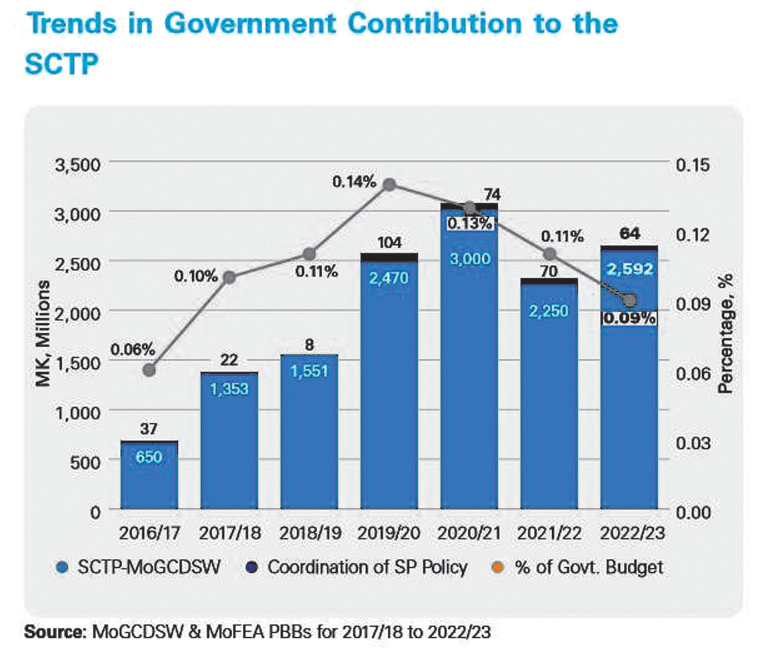UN speaks on social protection budget
Budget allocations to on-budget social protection programmes have hit their lowest value as a share of the total budget since 2016/17 fiscal year, the United Nations (UN) has said.
The UN has since warned that the situation makes the country’s social protection system vulnerable to potential donor funding withdrawals following large-scale global shocks and unexpected economic downturns.

In its 2022/23 Social Protection Brief, Unicef said social assistance programmes are mostly dependent on fragmented external financing, with donors funding over 90 percent of the Social Cash Transfer Programme, raising sustainability concerns over the medium to long-term.
“Reads the brief in part: “The need for social protection programmes in Malawi is stronger given the widespread poverty and continued vulnerability to multi-variate shocks.
“An estimated 51 percent of Malawi’s 18 million people are living below the poverty line while about 20.5 percent of the population are ultra-poor, meaning that based on 2019 data, one out of five Malawians was unable to meet their daily food requirements.”
It advises government to ensure development and implementation of a comprehensive and coherent social protection long-term financing strategy that also covers flexible mechanisms for crisis response and recovery efforts.
Unicef data shows that K33.2 billion has been allocated to the programme in 2022/23 fiscal year, but it is lower than investments made in fiscal years 2019/20 at K37 billion, 2020/21 at K55 billion and 2021/22 at K48 billion.
In the fiscal year under review, Treasury allocated K2.5 billion to the programme, which is higher than the K2.3 billion allocated in the 2021/22 financial year but lower than the K3 billion allocated in 2020/21.
The budget for the coordination of social protection policy under the Ministry of Finance and Economic Affairs was also reduced from K70 million in 2021/22 to K64 million in 2022/23.
Meanwhile, the Malawi Government is banking on the Malawi Social Cash Transfer Programme Strategic Plan that runs from 2022 to 2027 to increase overall funding and ownership of social protection programme and policy in Malawi by increasing overall financing and government contribution to 15 percent of total programme costs.
Minister of Gender, Community Development and Social Welfare Patricia Kaliati last week said the spirit of the programme’s strategic plan resonates with the intentions of the Malawi Government to increase the coverage for the programme to 15 percent.
“ Further, the strategic plan aligns with Malawi Government’s intention of building a resilient and sustainable social protection system through productivity-enhancing safety nets,” she said.
Social protection in Malawi consists of four major programmes, namely the Social Cash Transfer Programme, public works programmes, school meals programmes and village savings and loan associations.
The programme is the flagship social protection initiative and is implemented nationwide.
The overall trends in social protection spending are heavily influenced by on-budget donor funding patterns.
For instance, there is no allocation for the Public Works Programme in 2022/23 fiscal year as additional World Bank financing was not yet agreed by the time the budget was approved.





